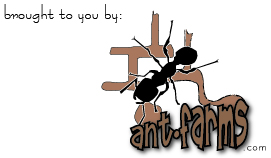Precautionary Measures
When taking care of ants, it’s important to remember that, like wasps, they sting. The sting is located in the rear, so be particularly careful when handling that. Their venom can be quite potent, especially if you’re rearing fire ants and harvester ants. Carpenter ants actually secrete some form of acid, which is actually harmless, but may cause pain when rubbed in the eye.
As for your ant farm, make sure that is it not placed in a very warm area, as ants dehydrate quite easily. Ants also die when their nest is hit directly by the sun. You should also avoid constantly moving or disturbing the colony. Move the farm only when necessary, and try not to shake it during transport.
Humidity levels of your colony should be adjusted according to the type of ants that you keep. You may consult books regarding the right humidity levels. For the meantime, here is a rough guide regarding the humidity levels that you ought to maintain. For tropical species, you should maintain about 65% to 85% humidity, but these species can tolerate up to 55% to 70% humidity.
To increase humidity, use a moist substrate so that water will evaporate. To keep the habitat moist, spray on some mist at least once a week. You may also increase your water source or use some sort of osmosis system.
If you want to decrease the humidity instead, you may make use of spot lamps or other heat-emitting objects. Just make sure that you do not heat the ant colony too much, as ants die easily under high temperatures.
Ventilation is also very crucial. Also avoid water condensation within their habitat.


